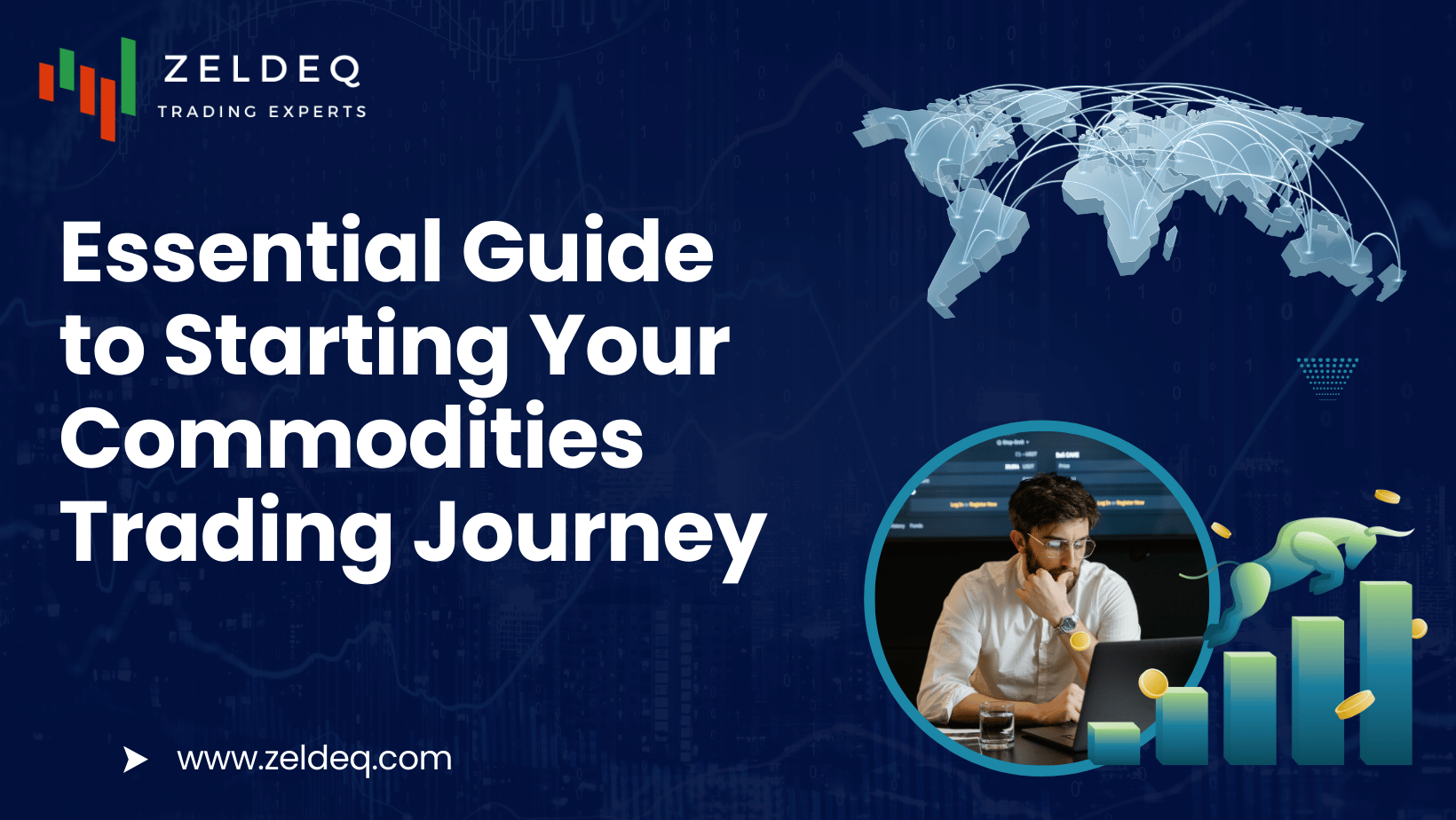Table of Contents
- What Are Commodities?
- Types of Commodities
- Why Trade Commodities?
- Getting Started with Commodities Trading
- Understanding the Risks
- Resources for Commodities Traders
- FAQs About Commodities Trading
What Are Commodities?
Commodities are basic goods used in commerce that are interchangeable with other goods of the same type. They serve as the building blocks for the global economy and can be categorized into two primary types: hard and soft commodities.
- Hard Commodities: These are natural resources that are mined or extracted, such as oil, gold, and metals.
- Soft Commodities: These include agricultural products or livestock, like wheat, coffee, and cattle.
Trading in commodities allows investors to diversify their portfolios, hedge against inflation, and gain exposure to different sectors of the economy.
“Commodities serve as the backbone of trade, influencing economic health and investment strategies worldwide.”
Types of Commodities
| Type | Examples | Characteristics |
|---|---|---|
| Hard Commodities | Crude Oil, Gold, Silver, Copper | Often subject to geopolitical factors and global supply/demand |
| Soft Commodities | Wheat, Coffee, Cotton, Pork | Heavily influenced by seasonal trends and weather conditions |
Hard Commodities
Hard commodities like crude oil are critical for energy production, while precious metals like gold and silver are often viewed as safe-haven assets. Their prices are largely affected by geopolitical events, supply disruptions, and changes in demand.
“Investors often turn to gold and silver during times of uncertainty, making them reliable assets in a trader’s portfolio.”
Soft Commodities
Soft commodities are typically influenced by agricultural cycles and climatic conditions. For instance, droughts can severely impact grain yields, causing price fluctuations.
“The unpredictable nature of weather can lead to sharp price movements in soft commodities, making it essential for traders to stay informed.”
Why Trade Commodities?
There are several compelling reasons to consider commodities trading:
- Diversification: Commodities can help diversify an investment portfolio, reducing overall risk.
- Inflation Hedge: Commodities often retain their value during inflationary periods.
- Global Economic Indicators: Prices of commodities can serve as indicators of economic health, providing insight into market trends.
Additionally, commodities trading can be an exciting and dynamic way to engage with global markets, allowing for various strategies—from long-term investments to short-term trading. For more strategies on trading, read our guide on 10 Essential Steps to Start Trading Successfully (2024).
Getting Started with Commodities Trading
Embarking on your commodities trading journey involves several steps:
1. Educate Yourself
Understanding the commodities market is crucial. Resources like the CME Group offer comprehensive educational materials. You can also check out our article on Understanding How Trading Works: A Beginner’s Guide.
“Knowledge is your best ally in trading. The more you learn, the more confident you’ll become in your decisions.”
2. Choose a Trading Strategy
Determine whether you want to invest for the long term or trade actively. Common strategies include:
- Day Trading: Buying and selling commodities within the same trading day.
- Swing Trading: Holding positions for several days to capitalize on market swings.
- Investing: Buying and holding commodities for a longer period.
3. Select a Broker
Choose a reputable broker that offers access to the commodities markets. Look for one that provides educational resources, a user-friendly platform, and competitive fees. For insights into broker selection, see our article on Top 5 Essential Brokers for New Traders (2024).
“Selecting the right broker can significantly enhance your trading experience and provide essential tools for success.”
4. Open a Trading Account
Once you’ve selected a broker, you’ll need to open an account. Be prepared to provide personal information and complete verification processes.
5. Start Trading
Begin with small investments to test your strategies and gradually increase your exposure as you become more comfortable. For more about trading hours and maximizing your market potential, check out Trading Hours Uncovered: Maximize Market Potential.
Understanding the Risks
Like any investment, commodities trading carries risks. Price fluctuations can be volatile due to factors like:
- Supply and demand dynamics
- Geopolitical events
- Weather conditions
“Risk management is not just a strategy; it’s a necessity in the unpredictable world of commodities trading.”
It’s essential to have a risk management strategy in place, such as setting stop-loss orders and diversifying your trades. Explore effective risk management strategies in our article on Top 5 Risk Management Strategies for Trading Success.
Resources for Commodities Traders
To enhance your trading knowledge, consider utilizing the following resources:
These platforms provide valuable insights, market analysis, and real-time data that can help you make informed trading decisions.
“Staying informed is key. Utilize available resources to keep your trading skills sharp and up-to-date.”
FAQs About Commodities Trading
Q1: Can anyone trade commodities?
Yes, anyone can trade commodities, but it’s essential to understand the market and the risks involved. Most brokers have specific requirements for opening an account.
Q2: What are futures contracts?
Futures contracts are agreements to buy or sell a commodity at a predetermined price at a specified time in the future. They are commonly used in commodities trading to hedge risk.
Q3: How do I analyze commodities?
Analysis can be done through technical analysis (studying price charts) and fundamental analysis (assessing supply and demand factors, weather patterns, and economic indicators). For more on technical analysis, refer to 10 Essential Concepts in Technical Analysis for Beginners.
Q4: Is commodities trading risky?
Yes, commodities trading can be risky due to price volatility. It’s crucial to have a solid risk management strategy in place.
Q5: Where can I find more information on commodities trading?
Websites like CME Group and Investopedia provide extensive resources on commodities trading.
By taking the time to understand commodities, the various types you can trade, and the risks involved, you’re well on your way to becoming a successful commodities trader. Remember, the key to success in trading is continuous learning and staying informed about market trends.
“Trading is not just about execution; it’s about understanding, strategy, and the willingness to learn and adapt.”
Happy trading!


